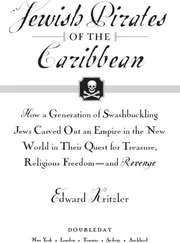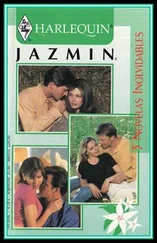Rochalle turned away from the sight of her husband. She did not wish to look at him, and yet she could do nothing else. Her eyes turned on him again and again, despite her wishes to the contrary. And, as she looked at him, she realized that he had never before seemed so hately to her as he was now.
But, along with having a changed feeling for Moshe-Mendel, she was conscious of the fact that she kept comparing him, unwittingly, with someone by the side of whom he was less than a nobody. She was comparing him with the good-for-nothing Stempenyu, who seemed to tower over him by several heads and shoulders. And, each moment, she found new faults in her husband, and new virtues in Stempenyu; so that she could hardly believe she had really been led into imagining that Moshe-Mendel was even an ordinary man, much less the noble being she had taken him for.
Where now were the charms, the pleasant manners, and the wit she had seen in him? Where was his beauty gone, and his youthful joyous bearing? What had become of the glowing words and the expressive gestures about which she had gone into raptures? Could this be really the same Moshe-Mendel of only a short little while back? No, no; he was not the same. He had changed beyond recognition. And, everything was changed along with him.
And, in place of her husband, the vision of Stempenyu stood before her to harass her, and to bring down the ridicule upon Moshe-Mendel. She could not shake herself free from the vision, however much she tried — she could not. She was caught fast in the toils of her own imagination.
Away, away, dark temptation, from the heart and mind of this pure soul — this Jewish woman whose innocent heart is far from guile!
Next morning, when Chana, the beadle’s wife, came to Dvossa-Malka’s house to tell her that the bride and bridegroom, and all the relatives and friends of both parties, wished her and her husband, and their son, and his wife to come to the wedding-breakfast, Rochalle was already dressed in her best gown, which was of pale blue silk and had been made by the famous tailor, David. It had large puffed out sleeves, and white silk bows. The fashion of it was just new to Tasapevka, though it had gone out of date elsewhere three years before. On her head, she wore a blue silk cap of Oriental design, through which might have been seen the neat plaits of her golden hair, her beautiful curls which she kept hidden away out of sight. She had several rows of pearls around her beautiful neck, and wore a long gold chain, a brooch, earrings and finger-rings. In short, the whole set of ornaments which were fashionable amongst the Jewish women of her day.
Being fully dressed, she was sitting in the best room of the house. And, she was listening to the snores of Moshe-Mendel, who was still sleeping in exactly the same position. His head was thrown back, his eyes were glazed, and his mouth was wide open. His long bony neck showed still more hideously than even it had in the moonlight. Rochalle sighed as she listened to the regular rhythm of his loud snores. And, she went on with the thoughts which had vexed her the night before. She went over the same ground, in an undertone.
“Oh, what a difference there is in you, Moshe-Mendel, to whom I betrothed myself not so long ago. That time you were so charming, and had such bright eyes. They seemed to dance themselves into my heart. Your glances were like flames to me. They enkindled all the passions that were within me. Everything about you was so charming, so fascinating, and so lovable! And what are you now, Moshe-Mendel? You are an altogether different man. You were slender and graceful then; now you are hideously long and skinny. Your little yellow whiskers are only fit to be cut off this minute. Wherever did you get such a beard?”
And again, without wishing it, Rochalle held up the good-for-nothing Stempenyu for a model of perfection, by the side of whom her Moshe-Mendel was only a poor scarecrow. She forgot that Stempenyu had haunted her all the night, so tat she had not slept a wink.
“It is a great misfortune. But, I alone am to blame for it,” she thought, “I alone am to blame. The moment the good-for-nothing Stempenyu sands up before me, I talk to him, as if it were quite an ordinary thing to talk to a musician. What will the villagers say about me? It was well there was such a noise and uproar at the wedding. What would Moshe-Mendel say if he knew?”
She got up and went into the bedroom. She smiled grimly as she bent over her husband, and called him by his name. He opened his grey eyes, and stared blankly about him. It was some little time before he realized where he was, and who was bending over him.
“Moshe-Mendel,” said Rochalle, bending still lower over him; “Moshe-Mendel, do you not know me? You look as if you were amazed to find me here. Tell me how you like my new bonnet and veil?”
“Oh, leave me alone. I want to sleep.” With these words Moshe-Mendel turned over on his side, and was soon fast asleep, and snoring loudly once more.
“The bride and bridegroom, and the parents and the friends of both parties, sent me to tell you that they are expecting you and your husband, and your father and mother-in-law, to come at once to the wedding breakfast.”
Chana called out the message as she popped her head inside the bedroom door; for, she found that all the other rooms in the house were empty. But, catching sight of Rochalle as she was bending over her sleeping husband, Chana withdrew in the greatest confusion, and rushed off in hot haste.
* * *
When Rochalle arrived, the bride was still wearing her wedding garments. The two young women kissed each other, and at once started to talk in rapid voices, after the fashion of all young women who have much to say to one another.
The guests began to fill the house, and the waiters and waitresses loaded the tables with all manner of dainties. The superintendents, all the poor people who had been invited out of charity, were already in their places. The bride’s father, Chayam-Benzion, was running about here and there, in a velvet skull-cap, and a new coat; and the bride’s mother was already so hoarse that no one could make out a word of what she was saying. But, she persisted in trying to make order. She drove one person here and the other there; and, she shouted with all her might.
“Do you want to ruin me?” she cried to the waiters. “You go and place a dish of tarts on the table when you should have whisky and sponge-cake there. Woe is me! Ah, woe is me! Can I tear myself to pieces? There’s a wedding gift for you! It cost us a pile of money, and what is there for it? Even the musicians take advantage of me! They are not here yet. The cheek of them! As if they had anything else to do but put on their clothes, and hurry over here at once!”
“Shah! Let there be piece!” put in Chayam-Benzion. “What are you raving about? What good are you doing by roaring? You are doing nothing but adding to the terrible noise. Is it anything new to you to marry off a daughter? One would imagine that the like had never happened to you before. The whole town has come to the wedding, and you stand there roaring with your mouth wide open. And why are you roaring — I should like to know?”
“Who is roaring, mad animal, who is roaring?”
“I know who is roaring. Say yourself, who is roaring?”
“I am not roaring. You are roaring.”
“I am roaring? No, it is just the opposite.”
“Now you are roaring. Chayam-Benzion, what has come over you to make you so spiteful? Tell me that.”
“A good morning to all — to bride and groom, and all the relatives, friends, and well-wishers! Vivat!”
With these words, Chaikel the flute player led in the rest of the orchestra, all of whom took their places without any more ado. And, in a few moments, the rejoicings were again in full swing. The guests made a wild rush to secure the best places at the tables.
Читать дальше












